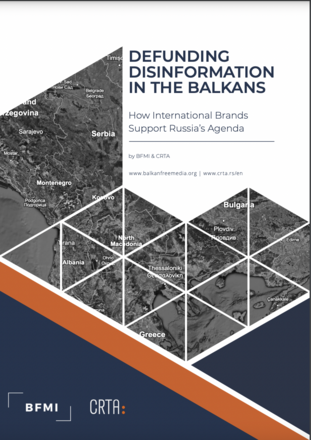
The study examines the ways in which corporate advertising revenues from global brands have grown into being one of the main sources of funding for Balkan media outlets which spread Kremlin’s disinformation. Specifically, the following emerged as preferred topics featured by Balkan media focused on fake news’ production: 1. Putin’s narrative on the Russian invasion of Ukraine; 2. Malign government propaganda; 3. Attacks directed to civil society, independent journalists and political opposition; 4. Spreading of undemocratic values. The authors of the survey investigate two case studies: Serbia and Bulgaria. By doing so, they provide concrete examples displaying the dynamics and data of the phenomenon. The authors argue that the current advertising system tends to reward those media outlets which are most problematic, given their involvement in spreading disinformation, a practice which contributes to the erosion of media freedom in the region. The report specifically calls on global brands and advertising companies to take responsibility, ensure ethical advertising policies and conduct enhanced due diligence on media outlets.
Tags: Fake news and disinformation Serbia BulgariaThe content of this article can be used according to the terms of Creative Commons: Attribution-NonCommercial 4.0 International (CC BY-NC 4.0) . To do so use the the wording "this article was originally published on the Resource Centre on Media Freedom in Europe" including a direct active link to the original article page.

